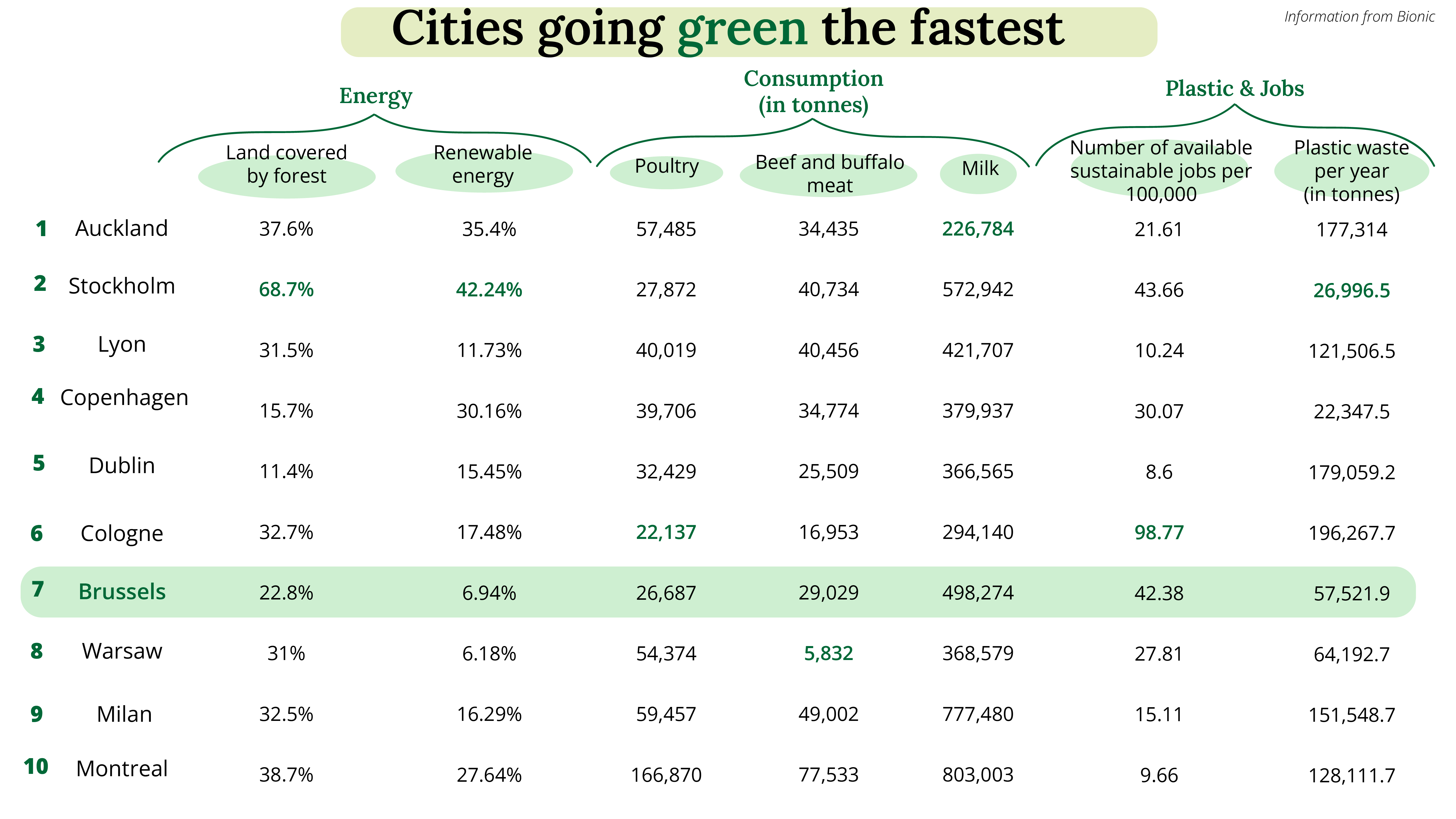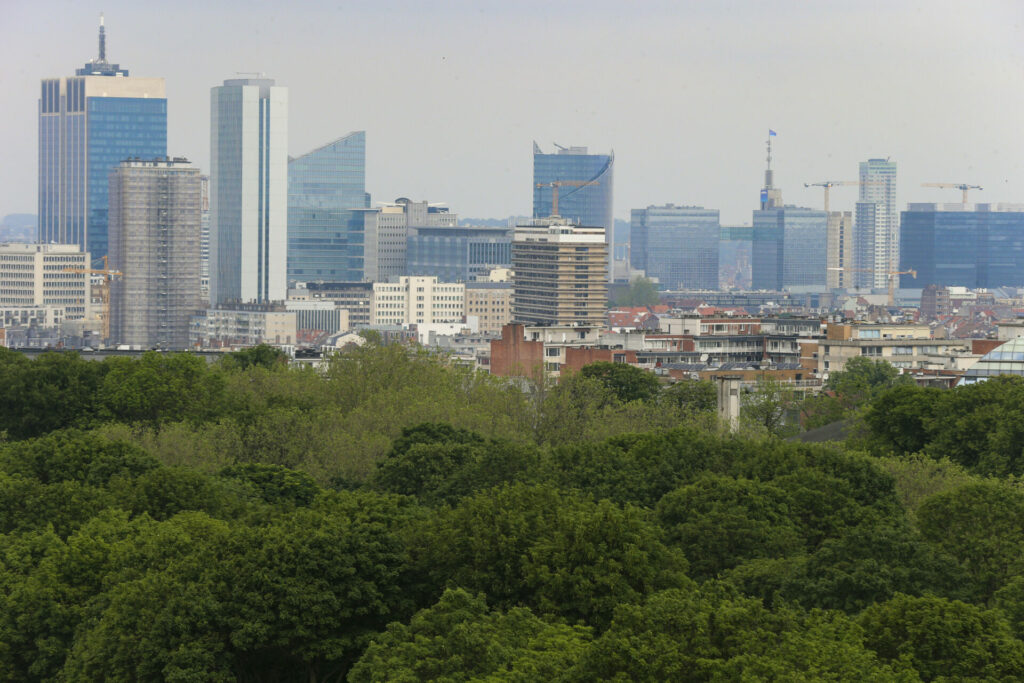In recent years, Belgium's capital and its residents have been taking active measures to be more sustainable and environmentally friendly, resulting in it making the top ten of cities across the world that are going green the fastest.
Brussels has ranked in sixth place with an "index score" of 69.2, based on how it scored in 13 categories including pollution, meat and poultry consumption and air quality, according to a recent study by Bionic, a UK-based comparison service for SMEs, which analysed the performance of the biggest cities across the globe.
The Belgian capital performs particularly well when it comes to the beef and chicken consumption of residents; these are both lower than in Auckland, which ranked highest overall with Stockholm in second place.
Brussels is also predicted to produce just 0.0018% of the world's mismanaged plastic waste by 2025, and there are 42 sustainable jobs available per 100,000 inhabitants.
"In recent months, the Brussels Region has launched a series of proactive strategies to meet the challenge of climate change, in particular, to move away from fossil fuels, to promote the insulation of buildings, to improve air quality, and to promote sustainable food, among others," Alain Maron, Brussels Minister for Climate Change, Environment, and Energy, told The Brussels Times.
"The fight against climate change is an opportunity to improve the resilience and quality of urban life. Through all these actions in very different fields, we are providing a structural and transversal response to fight climate warming more effectively."
The top ten
Discover how Belgium performed in the various categories compared to other cities in the top ten below.

Credit: Marta Mieze / The Brussels Times
Auckland, in the north of New Zealand’s North Island, is making its green transition most quickly according to the study, with a score of 78.1 out of 100 in the index. A total of 37.60% of the city's area is covered by forest – up by 6% since 1990.
Related News
- Brussels and Antwerp make progress on global index of sustainable cities
- Brussels rises 16 places on 'Most expensive cities for expats' list
Stockholm, where 68.70% of the city is covered by forest, is the top-ranked European city and is followed by Lyon in France, which has seen the area covered by forests grow by one-fifth since 1990.
While 42.24% of Stockholm’s energy is renewable, Sao Paulo (capital of Brazil) does even better for renewable energy: 45.02% of energy there comes from sustainable sources. However, the area covered by forest has been decreasing rapidly since 1990 (-16%).

